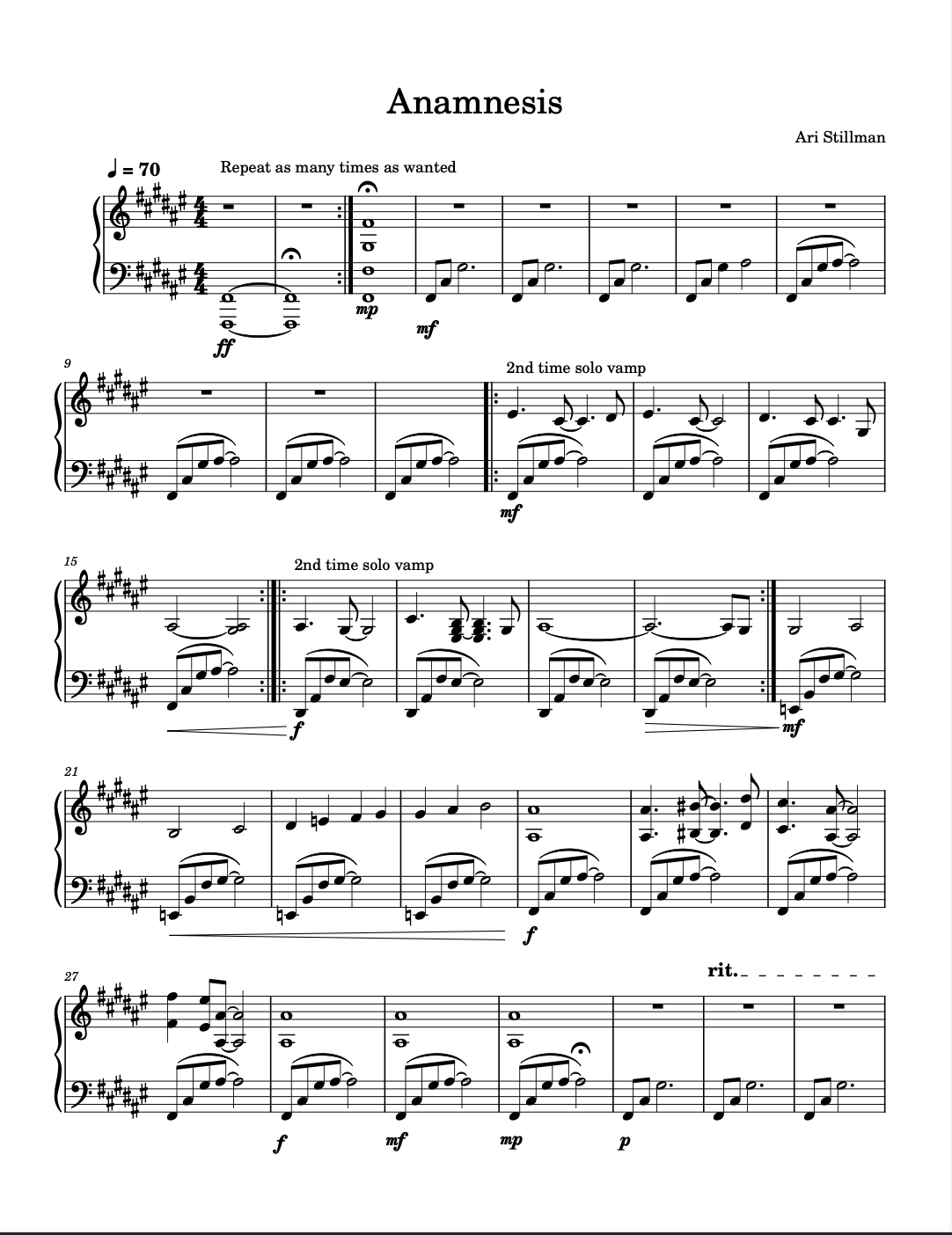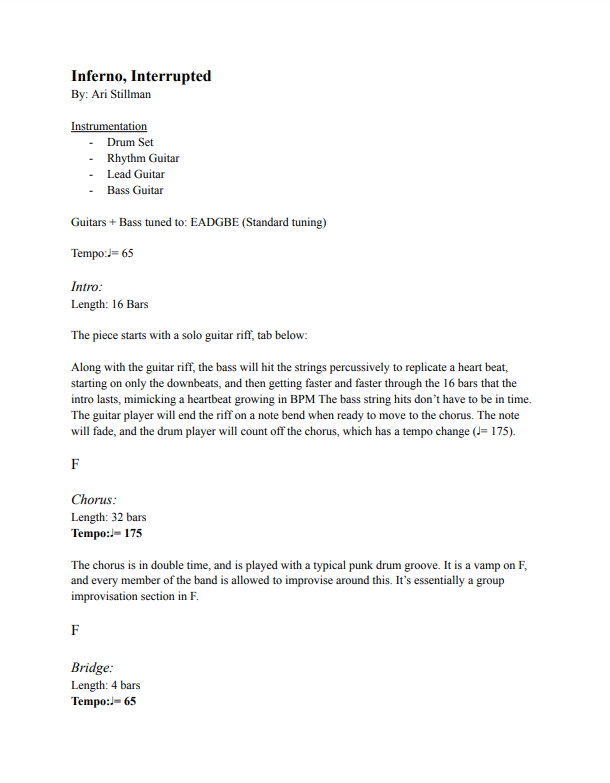Artist Biography
ARI STILLMAN (he/him) is a musician, actor, and writer. As of the publishing of this paper, he is studying for his B.A. in performing arts with a concentration in music at Endicott College in Beverly, MA. His work targets the ultra-specific moments of his life and seeks to be as vulnerable as possible, in the hopes that viewers of his work will have the space to reflect on their own lives and explore their own vulnerability. Ari has been performing music for over 15 years, and is a member of a number of music ensembles, ranging from percussion to choral singing to jazz. After graduating from Endicott College, Ari plans on continuing his performance and composing careers while pursuing a technical career in theater.
Thesis Abstract
David Hume, a Scottish philosopher, says in A Treatise of Human Nature (1739): “The minds of men are mirrors to one another, not only because they reflect each others emotions, but also because those rays of passions, sentiments and opinions can often reverberate and gradually fade away” (Hume, 1739). Hume speaks to the idea that as humans, we reflect each other’s emotions, and this is the basis of empathy. To be empathetic is to understand others and their experiences, and some could argue that one of the most important goals in music is to share experiences or feelings through sound. As composers, we reflect our minds into our music, hoping that others can reflect the emotions we present in the music. This study seeks to consolidate research done regarding this idea of musical empathy, specifically focusing on how composers and performers can evoke emotional responses in audiences. The paper is divided into several sections: individuality, performance, composition, and the benefits of performing music, each exploring a different aspect of empathy in music and music performance. The information in this paper aims to help composers and performers in creating more meaningful works that facilitate stronger emotional responses from audiences during performances.



